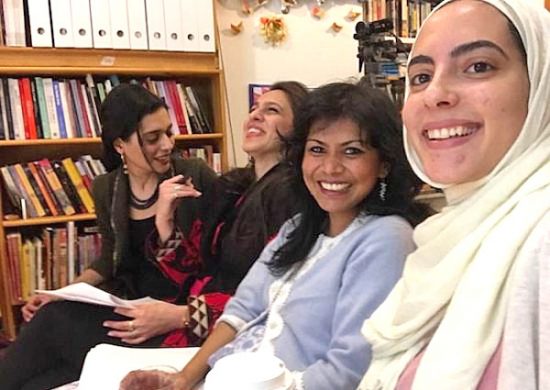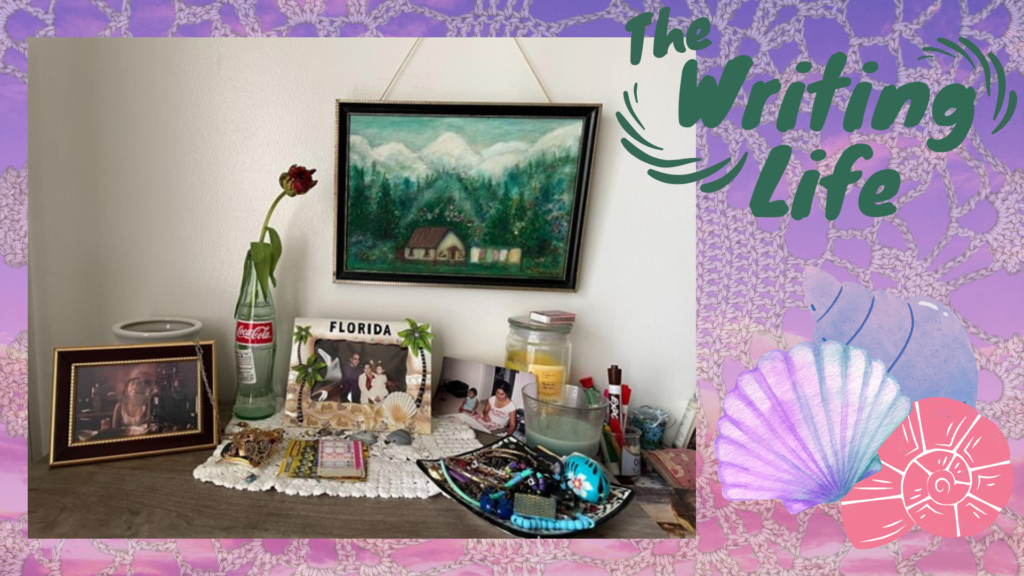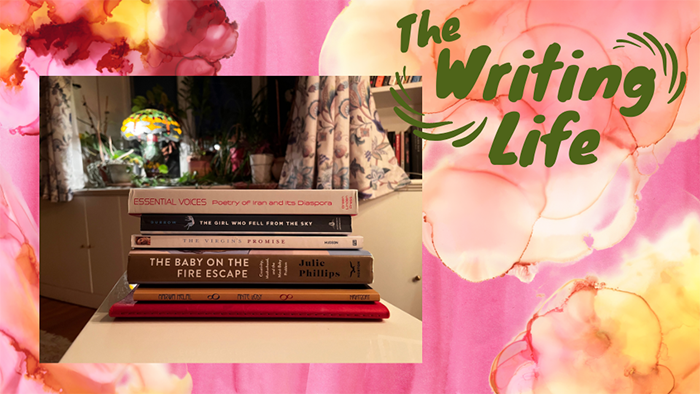Former Open City Fellow Astha Rajvanshi answers 10 questions about her writing life
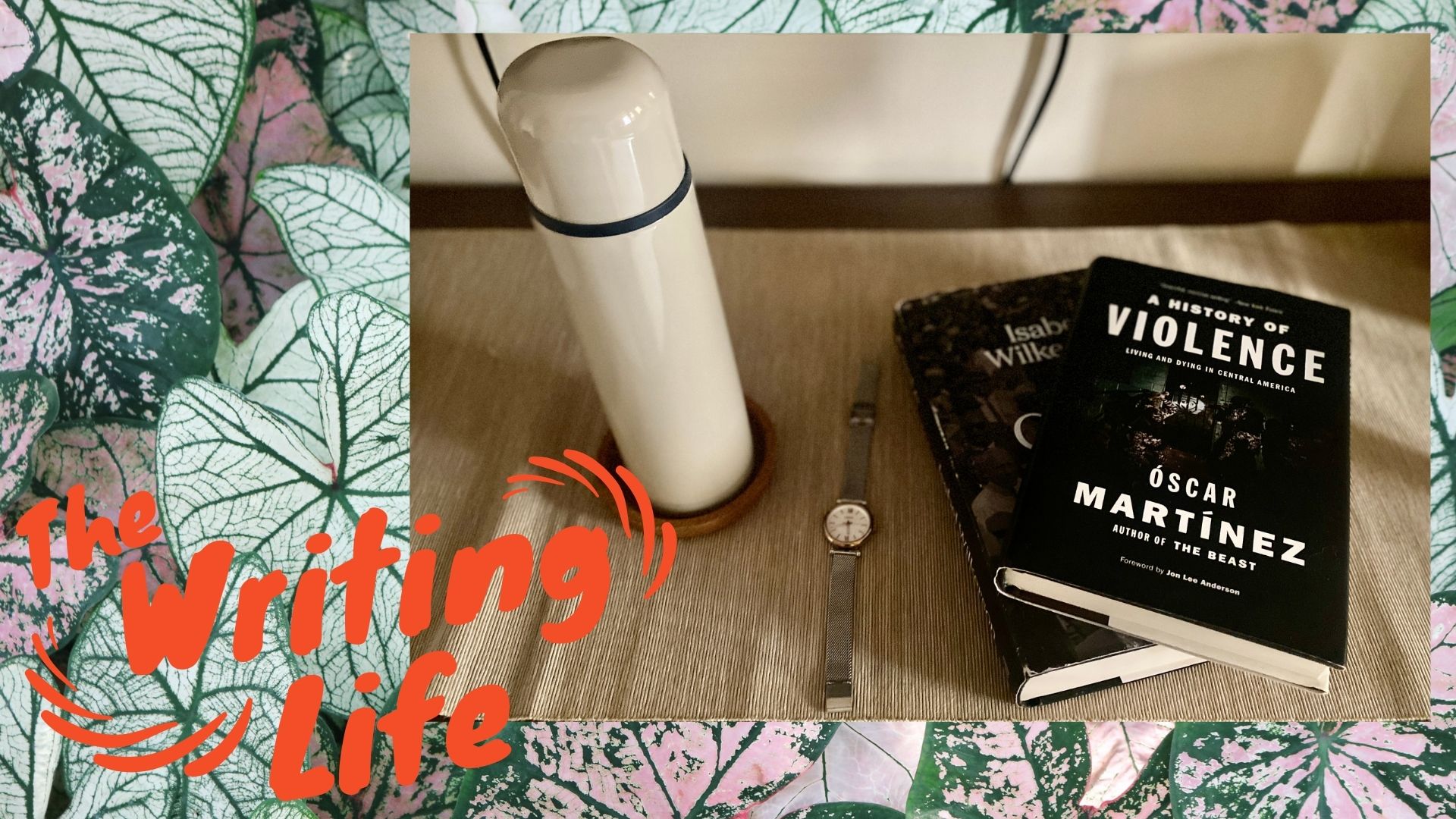
March 3, 2022
“Writing is easy,” Pulitzer Prize–winning sportswriter Red Smith once said. “All you do is sit down at a typewriter and open your veins, and bleed.” Putting pen to paper (or fingers to a keyboard) is never a simple task, even for seasoned writers. Even our Margins and Open City Fellows—and there’s quite a handful of them—can attest to that. Many of them, though, have gone on to write and report for mainstream publications and publish books. In this series, we reached out to our former fellows and asked them to give us a glimpse of their writing lives and to share some tips on how they navigate this creative process called writing.
Astha Rajvanshi was an Open City Fellow in 2019. Her first story, “The Absence of Atta and the Dearth of Dal,” talks about how the scarcity of these staples gave rise to a food pantry offering culturally appropriate South Asian food in NYC. In “No Longer ‘Apu,’ Not Yet Beyond ‘Mindy’,” Astha asks, “How can we reimagine South Asians on the big screen?” She also wrote about a priceless gesture that a deli in Manhattan offered to mostly immigrant taxi drivers in “Taxi Cab Drivers Have Nowhere to Go.”
Here’s Astha.
—Noel Pangilinan
□ □ □ □ □
1. What’s on your nightstand?
My wrist watch, a bottle of water, my phone and charger, and a copy of Caste by Isabel Wilkerson, and My Life in Full by Indra Nooyi.
2. How do you start your day? What’s a typical day for you?
I start my day with a cup of coffee and a long shower. Typically, I’ll be at my desk or in a cafe writing and reading until about 5, when I go for a long walk at dusk in Bandra, my neighborhood in Mumbai, which is right by the Arabian Sea. Then, I’ll return home and watch mind-numbing reality television with dinner.
3. Why coffee and not or tea?
There’s no compelling reason for why (coffee), it’s just a habit I’ve cultivated since I was in high school, and now, I can’t imagine my world without coffee.
4. Any book you’re reading now? Any podcasts you’re listening to now?
I’m reading Caste by Isabel Wilkerson. As someone living and writing about marginalized communities in India, this book has given me so much to think about comparatively!
5. When do you write best?
I don’t have a set time of day, but I’ll write whenever motivation strikes, though I think my best writing happens in the afternoon.
6. How and where do you get ideas for your stories?
I read as much as I can about a place or a topic—the news, articles, tweets, street signs—and then I try to talk to as many people as possible who may have something to say about it. Sometimes, if I’m traveling, I’ll get ideas from observing the small details of everyday life.
7. Do you have any tips for interviewing people? Like, what tools do you always use when reporting?
What has worked for me is to try and have a conversation with them, rather than bombard them with direct questions about any particular issue. Often, I find that the most revealing, surprising or delightful details in a story come from the person first describing their day-to-day, which can then expand into looking at the wider context in which they operate. I also always try to be upfront with the subjects about what I’m working on and why I’m talking to them, so they don’t feel misled by my intentions.
8. How do you deal with writer’s block?
Melissa Febos once wrote, “I don’t believe in writer’s block. I only believe in fear,” which I think is so true in my case. The only thing that works when I get in that state is to write a sentence—any sentence—no matter how bad it is. It’s a start, which is better than nothing.
9. What are you working on now and what recent work are you proud of?
I’m currently working on the first chapter of what will hopefully come together as a book on migrants in India. Recently, I wrote about displaced climate refugees in the Sundarbans, an ecosystem of fragile islands in Eastern India which has now become the global epicenter of climate change. I’m proud of it because it is the kind of writing I always hoped to do.
10. What’s your fondest memory of being an AAWW Fellow?
AAWW gave me so much: community, encouragement to pursue my passion, the brains, hearts and feedback of smart and generous people. My Open City Fellow cohort made a trip to Brooklyn once for an immigrant food tour—it was both delicious and educational!
□ □ □ □ □
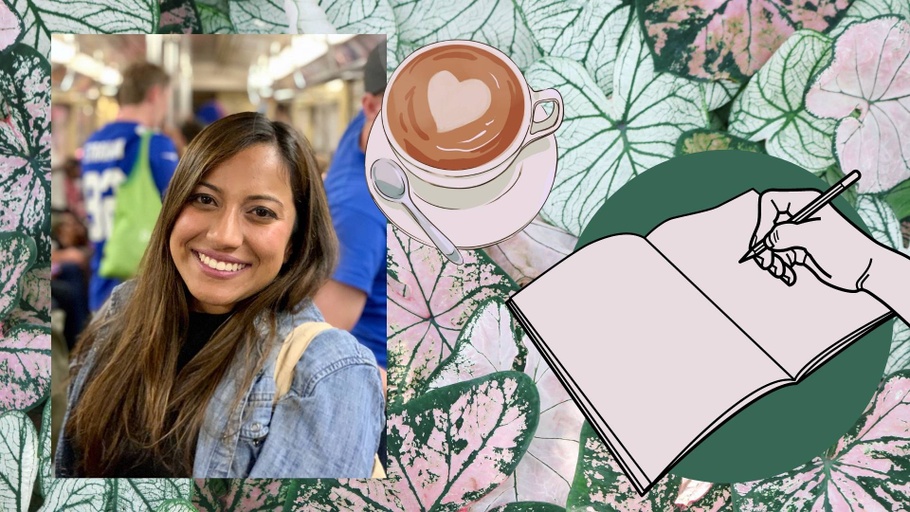
You may also be interested in these related stories:
Intuition Is My Main Tool by Chaya Babu
Writer’s Block? What’s That? by Humera Afridi
Write Like a Fugitive by The AAWW Interns

